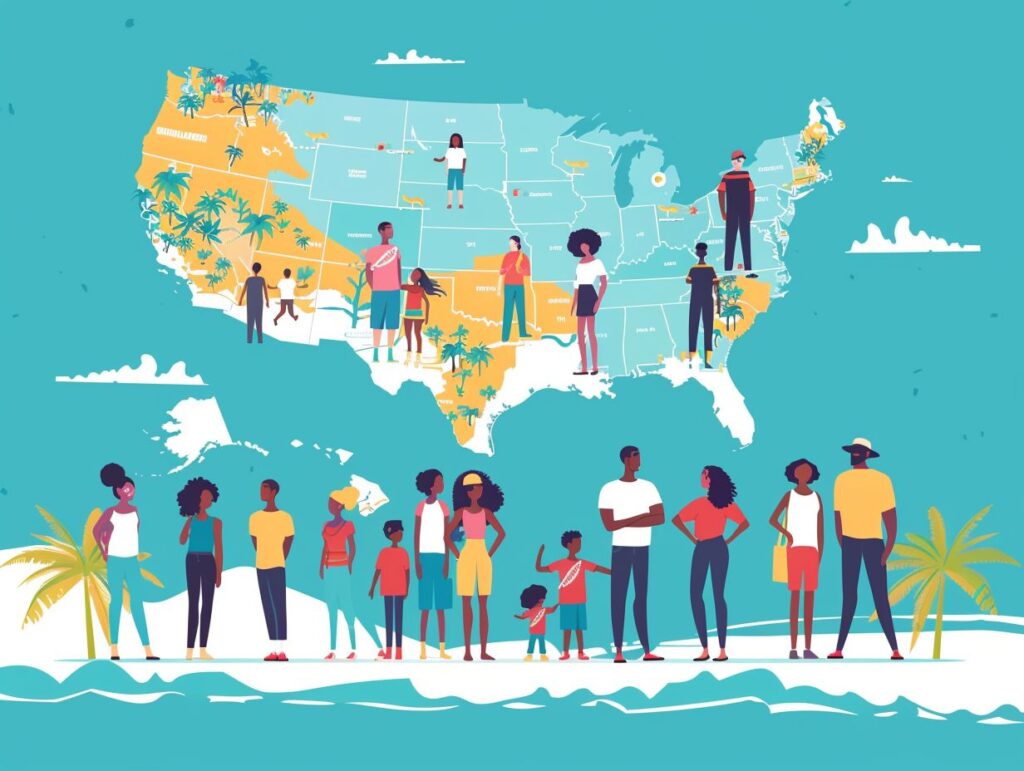- Florida’s Open Meetings Law ensures transparency and accountability in government proceedings.
- This article explores the scope of the law, including which meetings are covered and the requirements for a meeting to be considered “open.”
- We will also discuss the penalties for violating the law and how citizens can ensure compliance.
- Delve into the exceptions to the Open Meetings Law, such as closed or executive sessions.
- Stay informed about your rights and responsibilities when it comes to government transparency in Florida.
Key Takeaways:
- Florida’s Open Meetings Law ensures transparency in government agencies, advisory boards, and committees.
- To be considered “open”, meetings must meet requirements for notice, accessibility, and record-keeping.
- Violations of the law can result in civil and criminal penalties, but citizens can ensure compliance by attending meetings, requesting public records, or filing a complaint.
What is Florida’s Open Meetings Law?
Florida’s Open Meetings Law, commonly referred to as the Sunshine Law, requires that governmental proceedings and public meetings in the state are conducted openly to ensure public access and transparency. Enacted in 1967 as part of a broader effort to promote accountability and prevent corruption in government, the Sunshine Law was a significant development in Florida’s history.
Based on the belief that citizens have a fundamental right to know how their government operates, the law’s statutory framework is outlined in Chapter 286 of the Florida Statutes. The state Legislature plays a crucial role in establishing and upholding these open government laws, demonstrating a commitment to democratic principles and the protection of the public interest.
What Meetings are Covered by the Law?
The Sunshine Law is applicable to a range of meetings organized by governmental bodies, encompassing those held by public agencies, public boards, advisory boards, committees, and subcommittees.
1. Government Agencies
In Florida, government agencies, including state and local governmental bodies, are mandated by the Sunshine Law to conduct open meetings.
These open meetings play a crucial role in fostering transparency and accountability within governmental organizations’ decision-making processes. For example, the Florida Department of Environmental Protection hosts open meetings to address environmental policies and regulations, providing an opportunity for community members to offer input and stay informed.
Likewise, local county planning commissions convene open meetings to assess development projects and seek public feedback. By ensuring the accessibility of these meetings to the public, these agencies uphold democratic principles and enable citizens to engage in shaping their communities.
2. Advisory Boards
Advisory boards, which provide recommendations to public boards and other governmental bodies, are also subject to the Sunshine Law in Florida.
These boards play a crucial role in shaping policies and influencing decisions that impact various aspects of society. By bringing together experts from diverse fields, advisory boards ensure that decision-makers have access to a wide range of perspectives and expertise.
In the context of governmental proceedings, advisory boards serve as a vital resource, offering insights and guidance on complex issues. It is essential for these boards to operate transparently, as mandated by legal requirements such as the Sunshine Law, which ensures that their meetings are open to the public for increased accountability and public scrutiny.
3. Committees and Subcommittees
Committees and subcommittees formed within public agencies are required to adhere to the Sunshine Law by holding open meetings to provide public access.
These entities serve a critical role in the decision-making processes of public organizations. Committees are tasked with conducting thorough discussions, analyzing issues, and making recommendations based on their research. Subcommittees, on the other hand, concentrate on specific aspects of a broader topic or project, allowing for a more detailed examination.
By following the Sunshine Law, these groups ensure transparency and accountability in their actions, building trust between the public and the government. Their functions go beyond mere deliberation to encompass tasks such as research, drafting proposals, and facilitating public engagement, making them integral parts of the governance structure.
What are the Requirements for a Meeting to be Considered ‘Open’?
In order for a meeting to be classified as ‘open‘ under the Sunshine Law, it must meet particular legal requirements as outlined in the Florida Statutes to guarantee public access and transparency.
1. Notice Requirements
The Sunshine Law requires that appropriate notice be given for all public meetings to ensure that the public is informed and has the opportunity to attend.
As outlined in the Florida Statutes, public agencies must give notice at least 48 hours before a meeting. Methods of notification may include posting the notice in a designated location, publishing it in a newspaper, or electronically transmitting it.
The notice must detail the time, location, and purpose of the meeting, as well as any materials to be discussed. Additionally, the notice should provide information on how the public can access further documents or take part in the meeting where applicable.
2. Accessibility Requirements
Accessibility requirements mandated by the Sunshine Law guarantee that public meetings take place in venues that are easily reachable by the public.
Meeting venues chosen for government meetings must fulfill certain conditions to be deemed appropriate according to the law. These conditions typically encompass aspects like proximity to public transportation, sufficient parking availability, wheelchair access, and clear signage for wayfinding.
Considerations for individuals with disabilities are pivotal in assessing the appropriateness of a meeting location. By addressing the needs of all community members, these requirements foster inclusivity and facilitate varied involvement in crucial governmental conversations and decision-making processes.
3. Record Keeping Requirements
The Sunshine Law mandates the accurate maintenance and availability of minutes and records from all public meetings as public documents.
This focus on record-keeping plays a significant role in fostering transparency within government entities and ensuring accountability to the public. Records that must be kept include meeting agendas, audio or video recordings, attendance records, and any documents presented or discussed during the meetings.
These records act as a vital resource for citizens to remain informed about decisions made by their elected officials and comprehend the thought process behind those decisions.
Procedures for public access to these documents typically involve submitting a formal request under the Freedom of Information Act (FOIA) or consulting the relevant government agency for specific guidelines on accessing public records.
What are the Penalties for Violating the Open Meetings Law?
Violations of the Sunshine Law may lead to substantial penalties, encompassing civil and criminal consequences, in order to ensure compliance and maintain the principles of open government.
1. Civil Penalties
Public officers who violate the Sunshine Law may face civil penalties, including fines and other sanctions, to ensure accountability in governmental proceedings.
These civil penalties can vary depending on the severity of the violation. For minor infractions, individuals may receive warning notices or reprimands. In more serious cases, fines could be levied, and in extreme circumstances, removal from office may be enforced.
The process for enforcing these penalties typically involves investigations by government agencies or ethics commissions, followed by formal hearings where evidence is presented. Recent examples of such cases include public officials found guilty of misusing public funds or engaging in unethical conduct, leading to significant fines and disciplinary actions.
2. Criminal Penalties
In more severe instances, criminal penalties may be enforced for Sunshine Law breaches, with the Attorney General’s Office taking a substantial part in prosecution. These criminal penalties usually entail the possibility of incarceration for individuals proven to have deliberately violated the Sunshine Law.
In previous criminal proceedings, public officials have been subjected to substantial fines and jail time for purposeful non-adherence to transparency regulations. The Attorney General’s Office serves as the legal foundation in pursuing these matters, guaranteeing that individuals who undermine the tenets of open government are held responsible through legal proceedings.
How Can Citizens Ensure Compliance with the Open Meetings Law?
Individuals can contribute significantly to ensuring compliance with the Open Meetings Law by actively engaging in public meetings, requesting public records, and lodging complaints when violations occur.
1. Attending Meetings
Attending public meetings is a direct way for citizens to exercise their right to public access and ensure government transparency under the Sunshine Law. Such gatherings provide individuals with the opportunity to observe decision-making processes firsthand, actively participate in civic discussions, and hold elected officials accountable.
By attending these meetings, individuals can voice their concerns, offer suggestions for improvement, and contribute to shaping public policies that directly impact their communities. Finding meeting schedules is typically straightforward, with many government websites, community boards, and local newspapers publishing the dates, times, and locations.
The public presence at these meetings plays a crucial role in fostering governmental accountability, as officials are more likely to be transparent and responsive when they know citizens are actively engaged and monitoring their actions.
2. Requesting Public Records
Individuals have the right to request public records and documents under the Sunshine Law, promoting transparency and accountability in government operations.
The process of requesting public records is essential for ensuring that government activities are open to public scrutiny and oversight. Requests are typically made through formal channels established by the relevant government agency or department.
Common types of documents that can be requested include meeting minutes, financial records, emails, reports, and contracts. The public records law is vital in enabling citizens to hold their elected officials and government bodies accountable, thus enhancing the democratic process by providing greater transparency and awareness of decision-making processes.
3. Filing a Complaint
Submitting a complaint to the Attorney General’s Office is a method for individuals to address potential violations of the Sunshine Law and request enforcement of open government regulations. Once a complaint is received, it goes through an investigation process to determine the accuracy of the claims.
The Attorney General’s Office will collect evidence, interview relevant individuals, and examine pertinent documents during this investigative phase. This stage is essential for ensuring fairness and accuracy in evaluating the situation.
Depending on the investigation’s results, various outcomes are possible, such as issuing warnings or corrective measures, or taking legal action against those who have violated the law. The effectiveness of these procedures is heavily dependent on alert citizens who play a significant role in maintaining transparency and accountability in government proceedings.
What are the Exceptions to the Open Meetings Law?
The Sunshine Law requires open meetings but allows for closed or executive sessions, emergency meetings, and discussions involving confidential information under specific exceptions.
1. Closed or Executive Sessions
Closed or executive sessions, which are permitted under the Sunshine Law, typically involve matters related to attorney-client privilege, personnel issues, or litigation strategies.
Such discussions in closed sessions are essential to protect sensitive information that could compromise legal strategies or personal privacy if disclosed publicly. These private meetings also allow government officials to have candid exchanges regarding pending legal matters without risking the exposure of sensitive details.
To prevent abuse of closed sessions, strict guidelines are in place. For instance, the topics discussed must fall within the established legal parameters for executive session purposes. Meeting minutes are often kept and reviewed to ensure that the closed sessions remain in compliance with laws governing transparency in governance.
2. Emergency Meetings
Emergency meetings are exceptions to the regular notice requirements under the Sunshine Law and can be called on short notice in urgent circumstances.
For a meeting to be classified as an emergency meeting, the situation must be an immediate concern that requires quick action to address potential harm or significant disruptions.
Procedural requirements for these meetings usually include notifying the necessary members of the governing body, stating the purpose of the meeting, and ensuring proper documentation is kept detailing the emergency situation and decisions made.
Regarding public access, most laws stipulate that emergency meetings should be open to the public unless confidentiality or sensitive matters are at play. This ensures transparency and accountability in crucial decision-making processes.
3. Confidential Information
Certain types of confidential information fall under exemptions from disclosure under the Sunshine Law, as outlined in the Florida Constitution and related public records exemptions.
These categories of confidential information include sensitive details like trade secrets, medical records, ongoing investigations, and personal identifying information. The legal framework for these exemptions is established to protect the privacy rights of individuals, promote public safety, and safeguard proprietary business information.
In balancing these exemptions with the principles of transparency, government agencies must conduct a careful evaluation to ensure that only genuinely confidential information is withheld from public access. This delicate balance aims to uphold accountability while respecting the need for confidentiality in certain circumstances.
Frequently Asked Questions
What is Florida’s Open Meetings Law?
Florida’s Open Meetings Law, also known as the Sunshine Law, is a set of regulations that require public meetings to be open and accessible to the general public. This law ensures transparency and accountability in government decision-making processes.
Who does the Open Meetings Law apply to?
The Open Meetings Law applies to all government bodies, including state, county, and municipal agencies, as well as boards, commissions, and committees that are supported by public funds.
What types of meetings are covered by the Open Meetings Law?
The Open Meetings Law applies to any gathering of two or more members of a government body to discuss or take official action on matters within their jurisdiction. This includes in-person meetings, conference calls, and video conferences.
Are there any exceptions to the Open Meetings Law?
Yes, there are certain exemptions to the Open Meetings Law, such as discussions of litigation strategy, personnel matters, and trade secrets. However, these exemptions are strictly limited and must be stated in the meeting notice.
What are the consequences for violating the Open Meetings Law?
Violating the Open Meetings Law can result in legal action and penalties, including removal from office, fines, and even imprisonment. Any decisions made during a non-compliant meeting may also be declared null and void.
How can I ensure compliance with Florida’s Open Meetings Law?
To ensure compliance with the Open Meetings Law, government bodies should provide proper notice of meetings, keep accurate meeting minutes, and allow for public participation. It is also important to seek legal counsel and training on the requirements of the law.


























Rate this article:
No Comments yet!